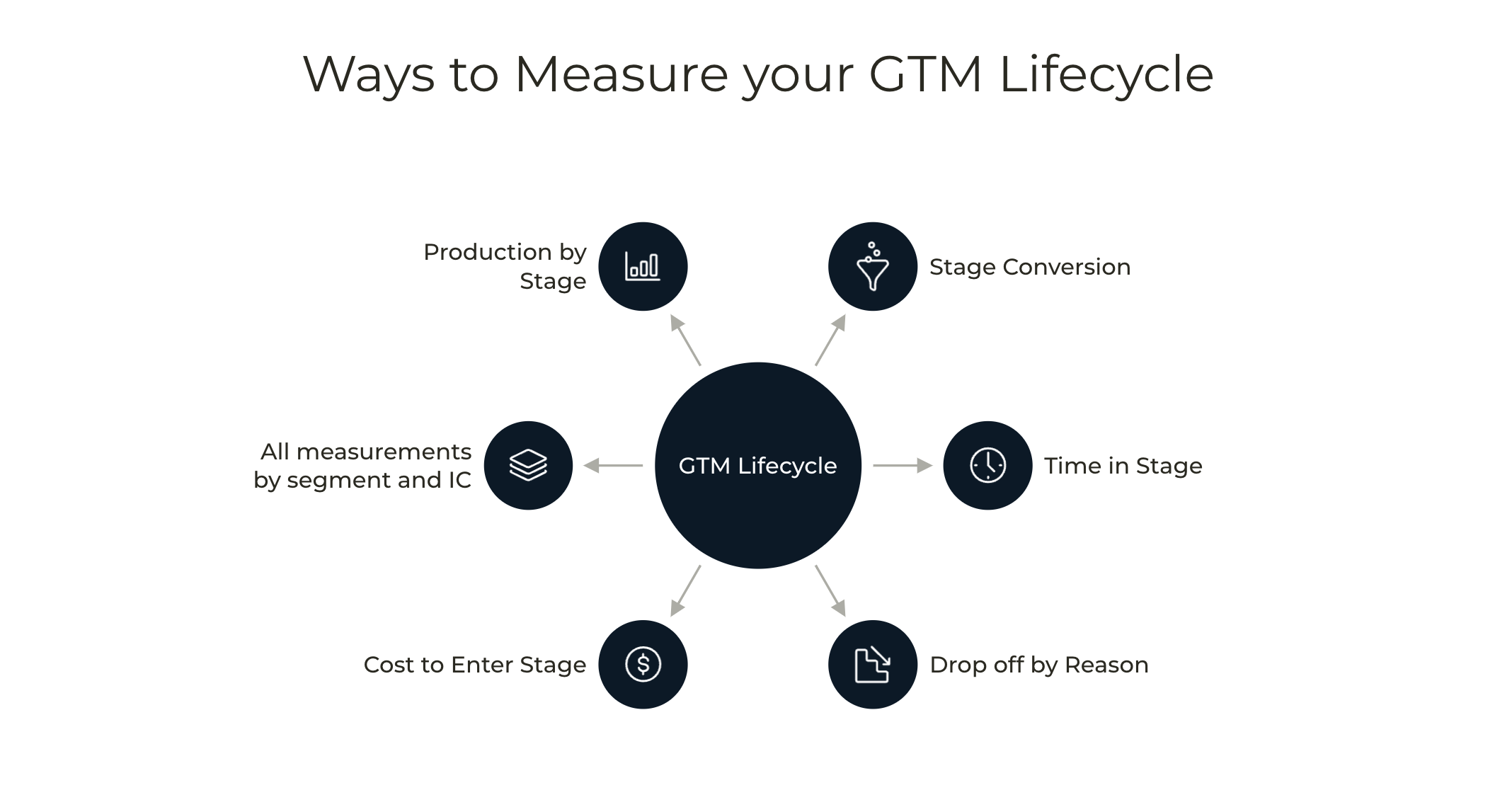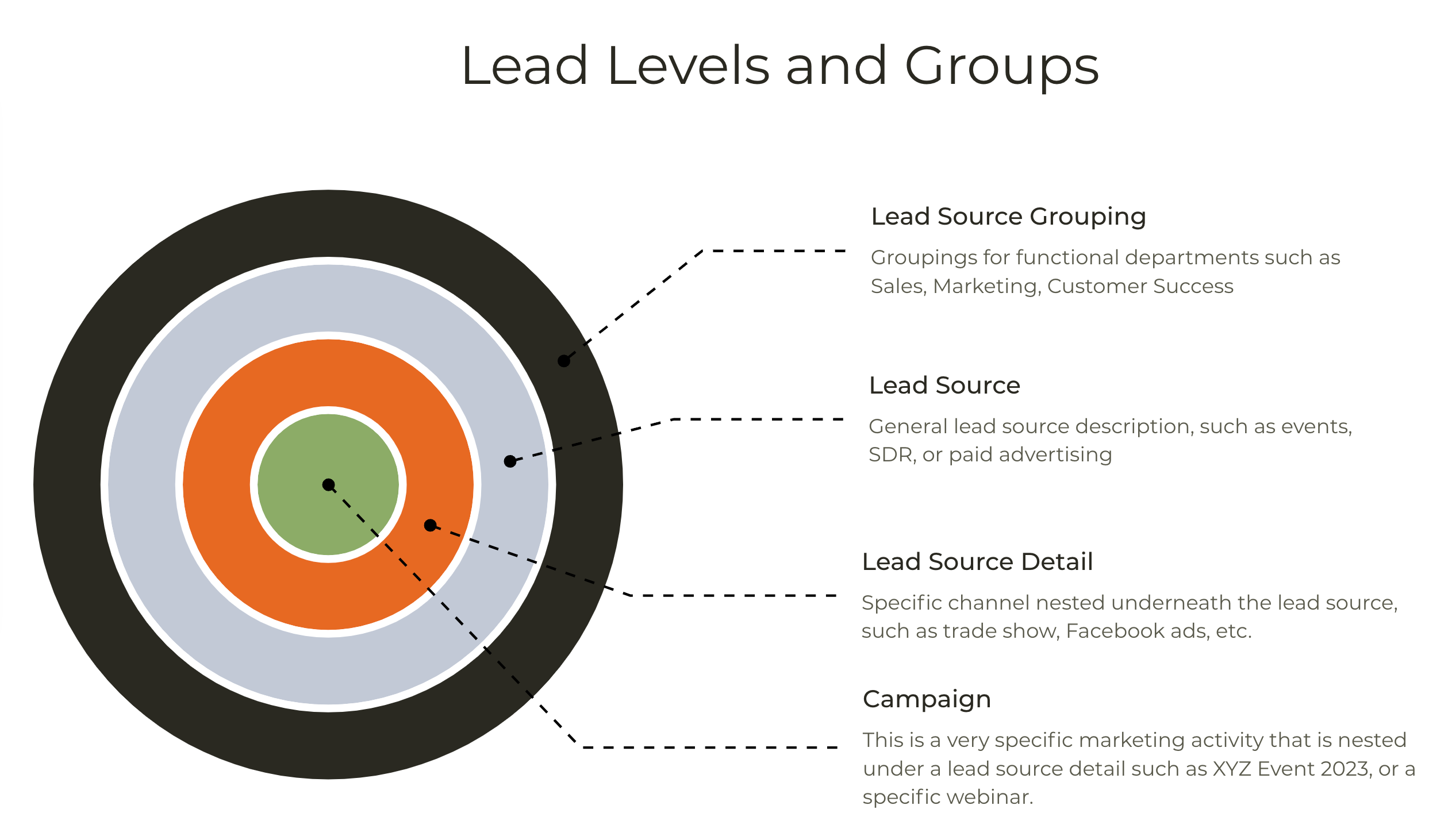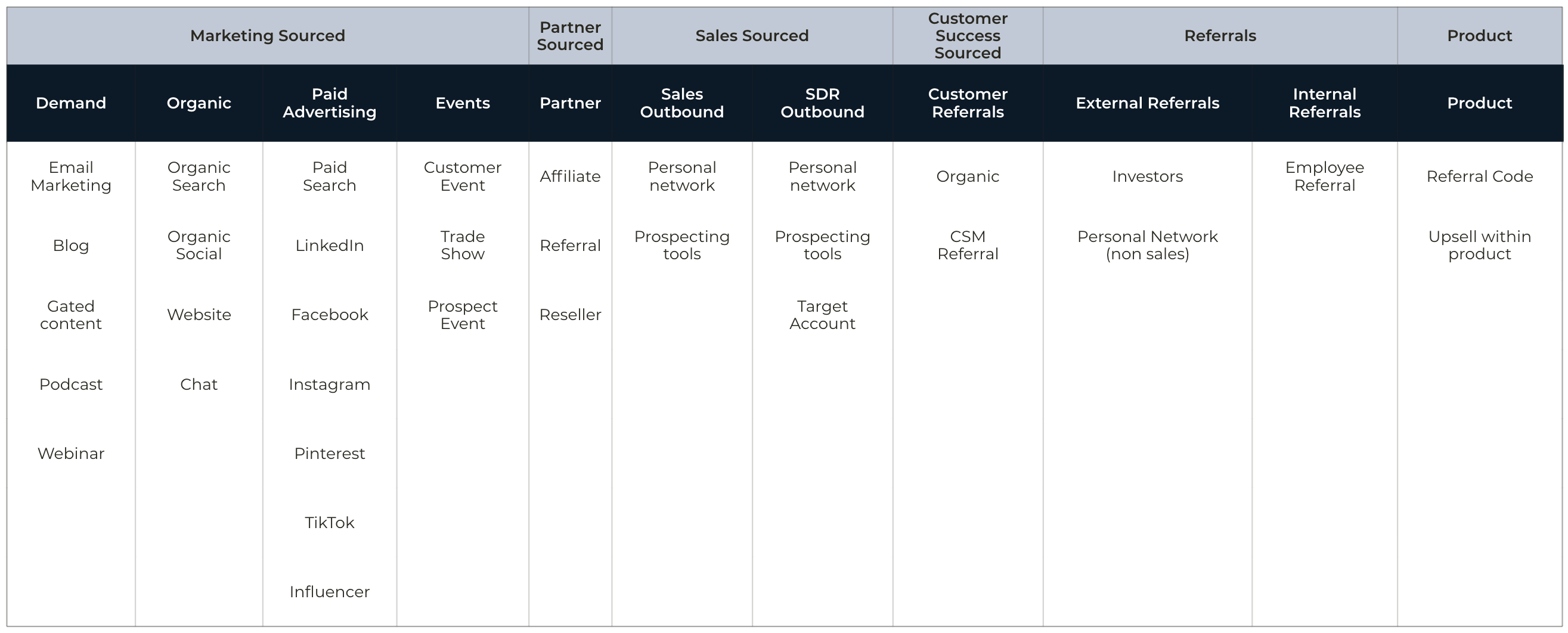YOUR FOUNDATION FOR ALL FUNNEL METRICS
The GTM Lifecycle
Discover the invaluable expertise and knowledge offered by LeanScale, a leading advisory company in the dynamic and ever-evolving Financial Services industry, as they unravel the intricacies of effectively constructing the fundamental framework which underpins every critical funnel metric essential for optimizing your business growth and success.
OVERVIEW
Build the Foundation to Measure Your Funnel
At LeanScale, we guide financial services organizations through every step of the go-to-market lifecycle, ensuring success and growth in a competitive industry.
Production
Production of leads, pipeline, bookings, and expansion can only be measured if you design and enforce a go-to-market lifecycle that aligns with your busienss process
Conversion Rate
Conversion from leads to pipeline, pipeline to closed deals, from new customer to early adoption, understanding your conversion rates will help identify bottle necks in the funnel and help you plan for the future
Cycle Time
How long is it taking to get from one step of the process to the next? Setting up the right markers to understand cycle time will help with forecasting and capacity planning.
Churn and Funnel Drop Off
Understand exactly when and why prospects and customers are falling out of your funnel so you can align resources appropriately and forecast future churn and drop off.
Break Down
Setting Up Your Stages
Setting up the right stages is the most important aspect of desigining and implementing a GTM lifecycle for scale.
Break Down
Measuring the GTM Lifecycle
Once you have installed the foundation of the GTM lifecycle you will begin to have rich data that you can use to measure every aspect of your funnel.

Break Down
Lead Source Taxonomy and Groupings
Align your lead sources and lead source groupings in a manner that allows you to categorize your data and use it to make data driven decisions.
First, organize the main categories of your lead sources.

Here's a lead source taxonomy that you can implement right away.

Break Down
Unlocking Your Marketing Data with the best fit Attribution Methodology
Whether you’re a high velocity business or leading a team of enterprise sellers, choosing the right attribution methodology for you is crucial.
KEY METHODOLOGIES
Attribution Methodologies and Which to Use
The right attribution methodology is the one your team will follow and you’re dedicated to invest in. You may not have the operational resources to impelment a full blown mutli-touch attribution method, and you may not have to.
First Touch Attribution
Tracking the very first time the contact or lead entered your system is key for a first touch attribution method. This is a good method for short sales cycles and high velocity motions. There are likely few touches in the process and the first is probably the most important. The credit of closed won and pipeline would go to the first touch source.
Last Touch Attribution
The most recent lead source that was associated with the lead or contact prior to moving to a sales qualified lead stage would be your last touch attribution lead source and receive credit for pipeline generation and closed won business.
First and Last Touch Attribution
Design two sets of reporting to look at your attribution from two lenses. One from a first touch perspective and the other from a last touch perpsective. This is more informative but requires aligning communications with your team when presenting numbers.
Multi-touch without Weighted Distribution
Measures all of the lead source interactions across the lead or contact journey, however, distributes pipeline and closed won credit evenly across all of the lead sources associated with the deal.
Multi-touch with Weighted Distribution
This measures all of the lead source interactions and creates a weighted distribution of pipeline and closed won credit based on the impact each lead source had on the deal or opportunity.
Ask Your Customer
Simply ask the person how they heard of you and what made them want to engage with you at this time. This may be one of the most impactful ways to gather attribution and can also be one of the simplest.
